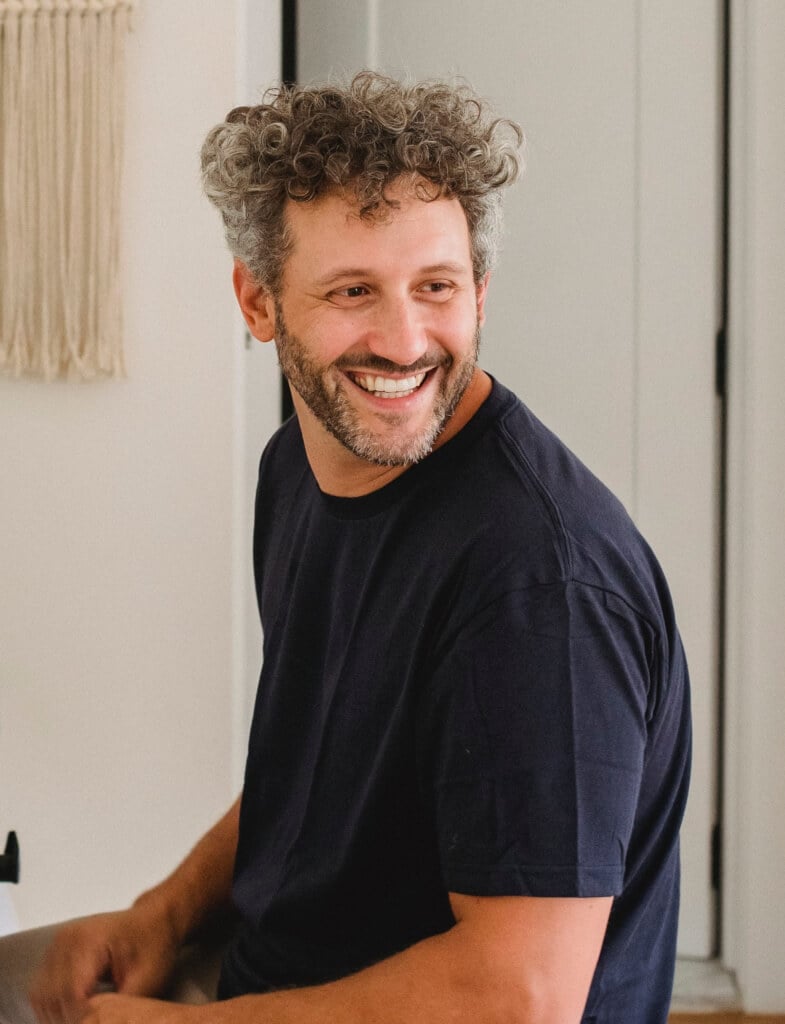
What’s good for hair growth?
It’s normal to experience hair loss. In fact, everyone loses between 50 and 100 hairs a day. Did you know that the average adult has around 100,000 to 150,000 hair strands? So, finding some on your hairbrush isn’t necessarily a reason to worry.
You might find that you’re losing more hair than you used to, and it’s not growing back. This is a common problem, especially in men as they get older. In some cases, there are things you can do to slow down hair loss or help with regrowth.


Was this article useful?
Hair can be a big part of our appearance. For many people, it’s a way to express their style and personality. Because of this, suffering hair loss can have an effect on self-esteem and confidence. So, it’s important to understand why this can happen, and what you can do to help treat it.
Our general health, diet and mental health can all impact hair growth, so it’s definitely worth finding out if there are any nutrition and lifestyle changes you can make to improve your head of hair. Vitamins, supplements and hair care may help too but there’s a lot of information to sift through, so let’s find out what actually works and what doesn’t.
What vitamins are good for hair growth?
If hair loss is concerning you, it’s important to make sure you’re getting the nutrients you need from your diet. A balanced and varied diet should have all the vitamins and minerals you need for healthy hair. For example, some studies have found that a Mediterranean diet is linked to reduced hair loss, which is a diet that involves eating lots of vegetables and fresh herbs. Protein is also vital for hair growth, and protein-rich foods include eggs, nuts, beans, chicken and fish.
Eating specific foods won’t usually solve hair loss unless you’re lacking something already, but there’s research to suggest vitamins can make some changes. Specific vitamins that can help with hair growth include:
Vitamin A
Studies suggest vitamin A can ‘increase the rate of hair growth’. It helps with the production of sebum, which moisturises the scalp and keeps hair healthier. Foods rich in vitamin A include sweet potatoes, peppers and spinach. In fact, 30 g of spinach can give you up to 54% of your recommended intake of vitamin A per day.
Vitamin C
Vitamin C is an antioxidant that helps with skin health and your immune system. Your body can’t make its own vitamin C, so it’s important to consume it regularly. Luckily, lots of foods have vitamin C in them, like most fruits and vegetables. Some examples of foods containing high vitamin C include kiwis, lemons, tomatoes and papayas.
Vitamin D
Studies have shown that a lack of vitamin D is linked to hair loss. It’s believed to play a role in hair production and most people don’t get enough of it. Foods that contain vitamin D include mushrooms, many types of fish and egg yolks. Lots of breakfast cereal, orange juice and milk is also fortified with vitamin D. You can get vitamin D with more sun exposure, but make sure to protect your skin.
Vitamin E
Vitamin E is another antioxidant that keeps your cells healthy and promotes hair growth. Some good sources of vitamin E are spinach, avocados, almonds, hazelnuts, peanuts, brazil nuts, mangos, kiwis, cod, olives and sunflower seeds. One study found that a group with hair loss experienced a 34.5% increase in hair growth when taking vitamin E supplements over a period of 8 months.
Iron
Research has shown iron deficiency can affect hair growth. Iron helps red blood cells provide oxygen around the body, which fuels your metabolism and helps growth. Iron deficiency is one of the main causes of hair loss, especially in women. Some foods high in iron include red meat, eggs, beans and lentils, dark leafy greens and dark chocolate. Combining iron sources with vitamin C could make it 67% easier for your body to absorb. So if you have a glass of orange juice with your eggs for breakfast, you’re far more likely to see the benefits of iron.
Amino acids
Amino acids help form proteins and make up one fifth of our bodies. They help to maintain hair density, strength and shine. There are nine amino acids that our bodies can’t make by itself, so we need to get them from our diet. Foods that contain all nine of these essential amino acids include meat, fish, eggs, soy and dairy products. You can also make sure you get all of them by eating a varied diet.
Omega acids
Omega-3 and Omega-6 fatty acids are beneficial for the body and the brain. Foods high in Omega-3 include oily fish like mackerel, walnuts, flaxseeds and kidney beans. Omega-6 food sources include peanut butter, sesame seeds and vegetable oils like sunflower oils. It’s important to get a good balance of both. You can also get these omega acids by taking supplements to promote hair health.
Is zinc good for hair?
Zinc is essential for repairing hair damage and promoting hair growth. It helps with the function of the oil glands around follicles. Studies show that hair loss can be affected by a zinc deficiency, so supplements can improve this. Foods with high zinc levels include beef, spinach, wheat germ, lentils and pumpkin seeds.

Do hair vitamins work?
Hair vitamins are supplements which claim to improve hair strength and growth. Most healthcare professionals agree that unless you have a serious deficiency in certain nutrients, hair vitamins won’t have a big effect on hair growth.
There isn’t any clinical data that shows hair vitamins can help hair growth. In fact, some studies have found they can worsen the condition of your hair. If you think you might be deficient in a certain vitamin, it’s best to talk to your doctor. They might suggest running some tests and recommend the best way forward.
Are there any home remedies for hair growth?
There are lots of different factors that can influence hair growth. Some of these include home remedies that you can add into your daily hair care routine. These are sometimes overlooked in favour of supplements, but there are many hair regrowth tips that you can carry out easily at home to improve hair health. Natural remedies for hair growth include:
Apple cider vinegar
Some people claim that washing your scalp with apple cider vinegar can help promote hair growth. It can make your hair look shinier and it’s fine for you to use unless you have a sensitive scalp. But apple cider vinegar is not a treatment for hair loss. You should talk to a medical professional if you want hair loss treatment.
Scalp massage
Scalp massages can help with stress and relaxation, but they are also beneficial for hair health and growth. A study found that daily scalp massages improved hair thickness after 24 weeks. They can help dilate blood vessels under the skin and increase blood flow to the scalp, which gets nutrients to follicles faster. This protects hair from breaking and being damaged.
Coconut oil
Lots of people say coconut oil helps their hair grow faster. There is no research to suggest coconut oil increases the rate of hair growth, but it is a great moisturiser. Coconuts contain lauric acid, a fatty acid often considered great for skin. So while coconut oil won’t make your hair grow faster on its own, it can help keep it healthy.
Hot castor oil
Some people find using castor oil to massage their roots helps their hair growth. While castor oil is rich in certain nutrients, there isn’t any research to suggest it is effective for hair growth yet.
Regular trims
Many hairdressers will recommend regular trims to help with hair growth. Trimming hair doesn’t affect the follicles where the hair grows from, but it does get rid of split ends. Split ends slowly work their way up the hair strand stunting growth. So, trims can clear damage and prevent it from worsening. Over time, this keeps each hair strand healthy and free of breakage.
Avoid heat styling
Try not to use heat tools on a daily basis if you want to take care of your hair health. Heat damages the structure of your hair in order to curl or straighten it. Make sure to use a heat protectant when styling to keep your hair strong.
Pillowcases
Silk pillowcases can also protect your hair by preventing frizz and breakage. They have less friction than cotton pillowcases, so they make hair less vulnerable to damage.
Lifestyle changes to regenerate hair growth
When we make sure to look after our general health this in turn helps our hair. Making small lifestyle changes and being more conscious of our daily habits and routines can encourage hair growth.
Stop smoking
Smoking can be a factor in hair health. It restricts blood flow and nutrients that the scalp relies on. The toxins contained in smoke will also make hair vulnerable, so stopping smoking can lead to stronger, healthier hair.
Reduce alcohol intake
Although there isn’t a direct link between hair loss and alcohol intake, heavy drinking can cause a loss of nutrients and hormone issues. This can affect your hair’s appearance and make it thinner.
Take care of your hair
It’s important to look at the products you’re using for your hair and find out if they’re suitable for your hair type. Many products include harsh ingredients that could damage your hair.
What should I do about my hair loss?
If you’re worried about hair loss and thinning, make sure you’re living a healthy lifestyle. Eat a balanced diet, limit stress and take care of your hair. This won’t always solve hair loss, and what you do next is up to you. There are a range of options for hair loss. Some people grow to accept their hair loss, while others consider surgical treatments or medication.
What about prescription hair loss medication?
You might find that you are living as healthily as possible and still losing hair. Lots of people experience this as they age and want a solution. There are a range of medications that can improve your hair growth, you just need to talk to a clinician. They can make sure there are no underlying causes for your hair loss and advise you on treatment. Our team here at Treated can help you pick the best treatment for your hair.
“Mediterranean Diet: Fresh Herbs and Fresh Vegetables Decrease the Risk of Androgenetic Alopecia in Males.” Archives of Dermatological Research, vol. 310, no. 1, 27 Nov. 2017, pp. 71–76, 10.1007/s00403-017-1799-z.
“Retinoids: Compounds Important to Hair Growth.” Clinics in Dermatology, vol. 6, no. 4, Oct. 1988, pp. 129–131, 10.1016/0738-081x(88)90077-6.
“Successful Treatment of Alopecia Areata with Topical Calcipotriol.” Annals of Dermatology, vol. 24, no. 3, 1 Aug. 2012, pp. 341–344
“Effects of Tocotrienol Supplementation on Hair Growth in Human Volunteers.” Tropical Life Sciences Research, vol. 21, no. 2, 1 Dec. 2010, pp. 91–99
“Iron Plays a Certain Role in Patterned Hair Loss.” Journal of Korean Medical Science, vol. 28, no. 6, 2013, p. 934
“Iron Deficiency in Female Pattern Hair Loss, Chronic Telogen Effluvium, and Control Groups.” Journal of the American Academy of Dermatology, vol. 63, no. 6, 1 Dec. 2010, pp. 991–999
Prediction of dietary iron absorption: an algorithm for calculating absorption and bioavailability of dietary iron. The American Journal of Clinical Nutrition, 71(5), pp.1147-1160.
“Zinc: An Essential Micronutrient.” American Family Physician, vol. 79, no. 9, 1 May 2009, pp. 768–772
“Diet and Hair Loss: Effects of Nutrient Deficiency and Supplement Use.” Dermatology Practical & Conceptual, vol. 7, no. 1, 2017, pp. 1–10
Role of Caffeine in the Management of Androgenetic Alopecia. International Journal of Trichology, 4(3), pp.185–186. [Accessed 9 Dec. 2021].
“Standardized Scalp Massage Results in Increased Hair Thickness by Inducing Stretching Forces to Dermal Papilla Cells in the Subcutaneous Tissue.” Eplasty, vol. 16, 25
How we source info:
When we present you with stats, data, opinion or a consensus, we’ll tell you where this came from. And we’ll only present data as clinically reliable if it’s come from a reputable source, such as a state or government-funded health body, a peer-reviewed medical journal, or a recognized analytics or data body. Read more in our editorial policy.
Suggest a guide
Is there something you’d like to read about that we haven’t yet covered. Suggest it.
Give us the inbox treatment.
Disclaimer: The information provided on this page is not a substitute for professional medical advice, diagnosis, or treatment. If you have any questions or concerns about your health, please talk to a doctor.
We couldn't find what you're looking for.
Here's everything we treat. Or, if you're looking for something we don't have yet, you can suggest something.
Suggest a health guide
Tell us your idea here.
(And leave your email too, so we can let you know if we write an article based on your suggestion.)
What did you like about it?
What didn't you like about it?
Suggest a treatment
If there’s a particular treatment or condition you’re looking for, tell us and we’ll look into it for you.
Tell us about a problem
Ask or suggest something.
Submit your question here, or tell us if you’ve found an issue on our site.
Get the latest health news and articles, sent to your inbox.
By clicking 'Subscribe now' you're agreeing to our Terms.
- Great.
You’re signed up to our newsletter. Keep an eye on your inbox for our latest update.
- Thanks.
We’ll get back to you very soon. We aim to respond to all queries in one working day.
- Filter
Choose your shipping location
Receive offers and updates
Almost there...
We’ve sent you an email asking you to confirm your email address.
- All our reviews are collected from real patients after their treatment's been delivered.
- Every review we get is passed through Google's strict verification process.



